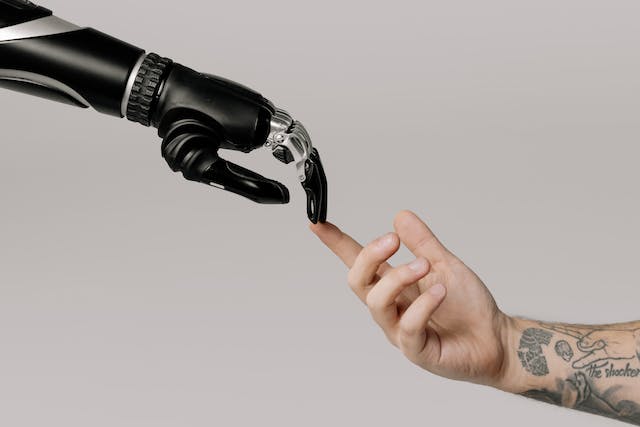In today’s digital age, the importance of website content cannot be overstated. It’s the driving force behind user engagement, search engine rankings, and overall online visibility. But as the digital landscape evolves, so does the challenge of producing high-quality, relevant, and engaging content. Enter Artificial Intelligence (AI). AI is not just a buzzword; it’s a transformative tool that can significantly enhance website content. Here’s how:

-
Content Personalization:
- AI can analyze user behavior, preferences, and past interactions to tailor content specifically for individual users. This means that when a user visits a website, they’re presented with content that resonates with their interests and needs, leading to increased engagement and conversion rates.
-
Automated Content Creation:
- Tools powered by AI, like GPT-4, can generate articles, product descriptions, and other types of content in mere seconds. While human touch is irreplaceable for certain nuanced pieces, AI can efficiently handle bulk content needs, especially for e-commerce sites or news aggregators.
-
SEO Optimization:
- AI can analyze vast amounts of data to determine what keywords are trending, how competitors are ranking, and what content strategies are most effective. By integrating these insights, businesses can optimize their content for better search engine visibility.
-
Visual Content Enhancement:
- AI algorithms can automatically enhance images, create infographics, and even produce videos. They can optimize visual content for faster load times without compromising quality, ensuring a seamless user experience.
-
Content A/B Testing:
- Instead of relying on human intuition, AI can run multiple content variations to determine which one performs best in terms of user engagement, click-through rates, and conversions. This data-driven approach ensures that the most effective content is presented to the audience.
-
Predictive Analysis:
- AI can forecast content trends, allowing businesses to stay ahead of the curve. By understanding what topics or formats will be popular in the future, companies can produce content that captures audience attention before the trend peaks.
-
Enhanced User Interactions:
- Chatbots and virtual assistants, powered by AI, can interact with users in real-time, answering queries, providing recommendations, and guiding them through the website. This not only improves user experience but also gathers valuable data on user preferences and behaviors.
-
Content Curation:
- AI can sift through vast amounts of content on the web to curate the most relevant and high-quality pieces for a particular audience. This is especially useful for businesses that want to provide value to their audience without constantly producing original content.
-
Grammar and Style Corrections:
- AI-powered tools can automatically detect and correct grammatical errors, ensuring that the content is polished and professional. They can also adapt the writing style to match the desired tone and voice of the brand.
-
Real-time Content Updates:
- Based on real-time events or data changes, AI can update website content to reflect the most current information, ensuring that users always have access to up-to-date and relevant content.
In conclusion, AI is not here to replace human creativity but to augment it. By leveraging the power of AI, businesses can produce more relevant, engaging, and effective website content, leading to enhanced user experiences and increased ROI. As AI technology continues to advance, its role in shaping the future of website content will only become more pivotal.






